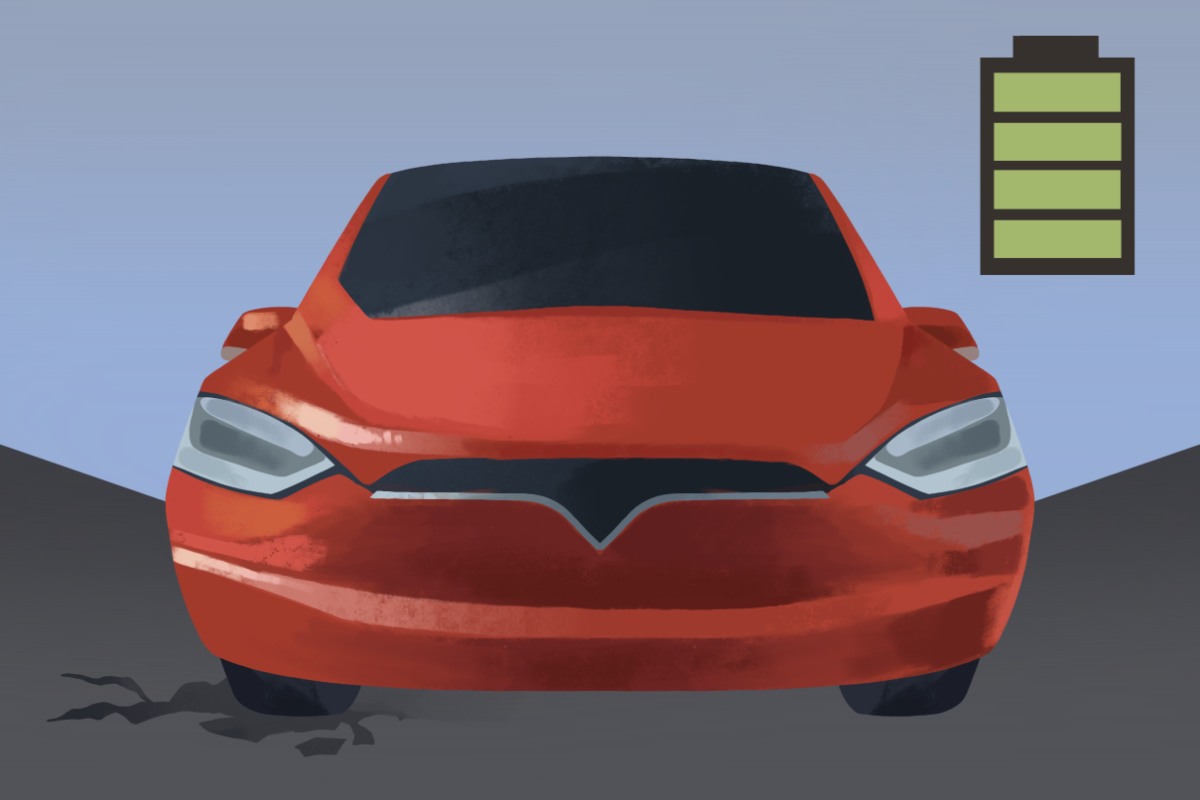In recent years, there has been a massive push for electric cars as the solution to climate change and our dependency on fossil fuels. While I believe that electric vehicles are a step in the right direction, I don’t think this will solve the long-term problems we will face in light of this coming climate crisis.
While it is true that electric cars will significantly lower an individual’s carbon footprint, they will still not be capable of solving the fundamental issues with our country’s infrastructure in the long term. Most notably, for us to have a truly more carbon-neutral future, we need to move away from extremely inefficient and resource-consuming practices.
Cars are fundamentally inefficient. The average car only has 1.5 people in it, making it vastly less efficient than other means of transportation such as buses and trains. While it is true that electric vehicles at least lower the active resource cost since they are recharged and the country is moving toward more renewable sources of electricity, the actual resources needed to construct each car and maintain road infrastructure must be taken into account.
The massive battery banks that electric vehicles use to store power significantly increase the weight of the cars, which massively affects the amount of wear and tear on road infrastructure. Furthermore, we need to take into account the actual materials needed to create the cars themselves. The mining of lithium, which is used to create the car’s batteries, often has disastrous effects on local ecosystems due to chemical and heavy metal poisoning. There is also the use of all the metals, plastics and other materials needed, which very quickly adds up and has an extensive ecological footprint.
Another crucial aspect is safety, particularly concerning sound. Although many people, including myself, may not appreciate the loud hum of gas-powered vehicles, sound pollution remains a significant issue. Electric cars, however, provide pedestrians with less warning compared to their gas-powered counterparts, potentially leading to accidents.
Another dangerous aspect of electric vehicles is that they can accelerate much faster than gas-powered cars, posing a risk from reckless drivers. Implementing speed limiters could help address this concern.
This is a tricky situation because electric cars are a good stepping stone to lower reliance on fossil fuels, but we also need to reduce our overall dependence on cars, leading to more pedestrians navigating unsafe streets.
Again, I want to reiterate that I am not anti-electric car. I think they are a viable short-term solution for a country that has been dominated by car-based infrastructure for so long, but I do feel that someday in the future, our dependence on them and how they deeply affect everyone’s lives is going to need to be analyzed and a redesign of our country’s infrastructure will be in order.















